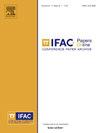个性化膳食丸计算器1型糖尿病会计日影响
Q3 Engineering
引用次数: 0
摘要
1型糖尿病的管理需要补偿碳水化合物的摄入与膳食量相匹配的胰岛素。最近的临床研究揭示了1型糖尿病患者胰岛素敏感性(SI)的日变化,其中胰岛素抵抗在一天中变化。胰岛素敏感性的日变化需要根据用餐时间,在相同的饭量下给予不同的胰岛素剂量。然而,使用胰岛素-碳水化合物比(CR)和校正因子(CF)等患者特定参数的标准剂量计算器不能考虑这种日变化。为了解决这一差距,本文提出了一个完全数据驱动的安全和个性化的剂量计算器,明确地说明了日变化。该算法不需要任何患者特定的参数,如碳水化合物比例、校正因子、胰岛素敏感性等,也不需要任何历史临床数据,即可安全地学习为每位患者量身定制的最佳剂量需求。该算法在fda认可的UVA/Padova T1DM模拟器的10名成人队列上进行了测试和验证。本文章由计算机程序翻译,如有差异,请以英文原文为准。
Personalized Meal Bolus Calculator for Type-1 Diabetes Accounting for Diurnal Effects
Type 1 diabetes management requires compensating carbohydrate intake with bolus insulin matched to the meal size. Recent clinical studies revealed diurnal variations in insulin sensitivity (SI) in patients with type 1 diabetes, where the insulin resistance varies over the day. Diurnal variations in insulin sensitivity requires different bolus insulin dose for the same meal size depending on the time of the meal. Standard bolus calculators that use patient-specific parameters such as insulin-carb-ratio (CR) and correction factors (CF), however do not account for such diurnal variations. To address this gap, this paper proposes a fully data-driven safe and personalized bolus calculator that explicitly accounts for the diurnal variations. The proposed algorithm safely learns the optimum bolus needs tailored to each patient without the need for any patient-specific parameters such as carb-ratio, correction factor, insulin sensitivity etc., nor any historical clinical data. The proposed algorithm is tested and verified on the 10-adult cohort of the FDA-accepted UVA/Padova T1DM simulator.
求助全文
通过发布文献求助,成功后即可免费获取论文全文。
去求助
来源期刊

IFAC-PapersOnLine
Engineering-Control and Systems Engineering
CiteScore
1.70
自引率
0.00%
发文量
1122
期刊介绍:
All papers from IFAC meetings are published, in partnership with Elsevier, the IFAC Publisher, in theIFAC-PapersOnLine proceedings series hosted at the ScienceDirect web service. This series includes papers previously published in the IFAC website.The main features of the IFAC-PapersOnLine series are: -Online archive including papers from IFAC Symposia, Congresses, Conferences, and most Workshops. -All papers accepted at the meeting are published in PDF format - searchable and citable. -All papers published on the web site can be cited using the IFAC PapersOnLine ISSN and the individual paper DOI (Digital Object Identifier). The site is Open Access in nature - no charge is made to individuals for reading or downloading. Copyright of all papers belongs to IFAC and must be referenced if derivative journal papers are produced from the conference papers. All papers published in IFAC-PapersOnLine have undergone a peer review selection process according to the IFAC rules.
 求助内容:
求助内容: 应助结果提醒方式:
应助结果提醒方式:


